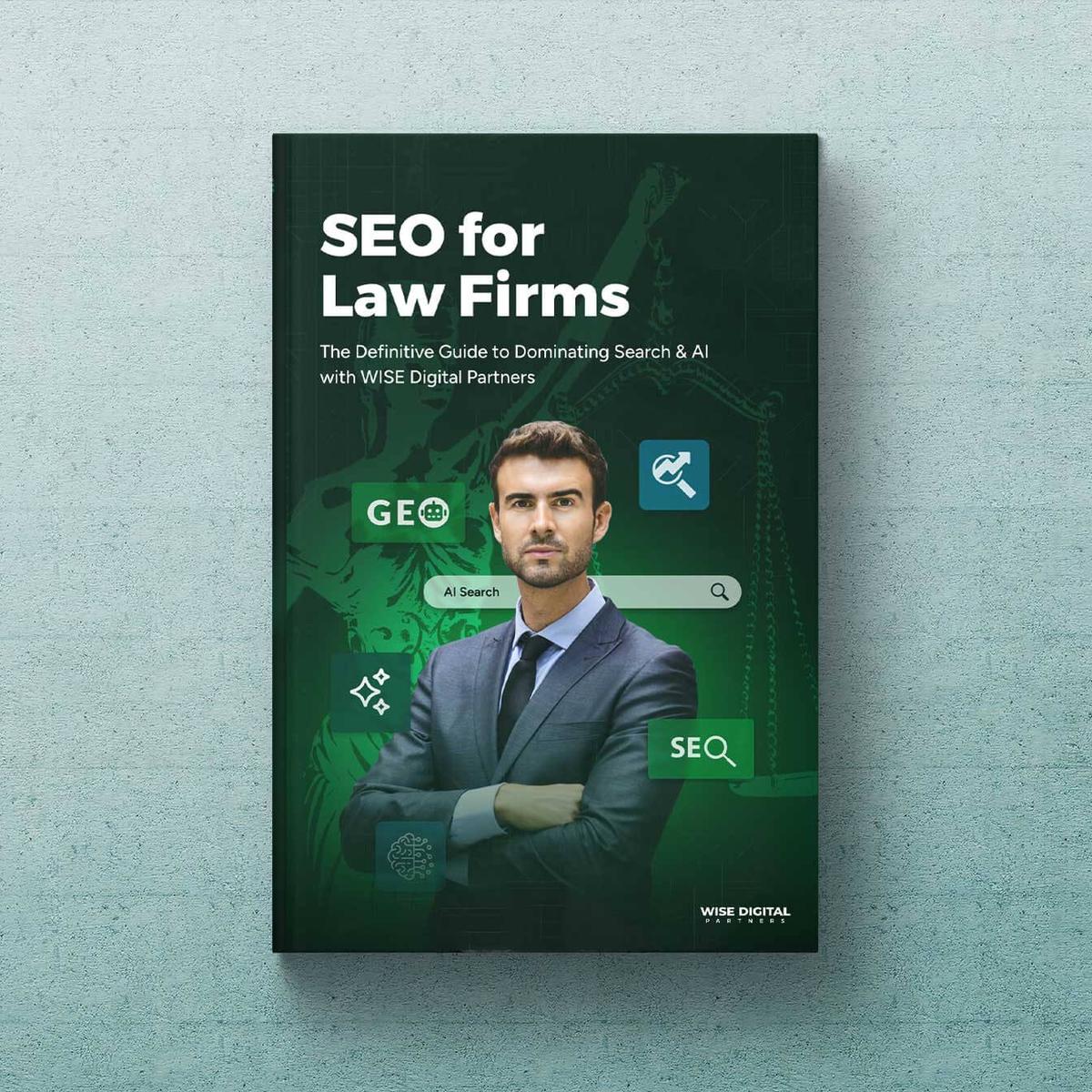It's Time to Get WISE.
A quick, honest call to assess your needs and point you in the right direction—no sales pitch. Best suited for:
- Established businesses with a defined marketing budget
- Businesses prepared to grow and scale
A deep dive with a top expert to uncover gaps and map a smarter path forward.
- Includes a $250 digital audit covering your website, SEO, local presence, and online performance—yours to keep.
- Get smart, actionable ideas you can apply to your business right away.

Enter the email you would like your guide sent to:

Enter the email you would like your guide sent to:

Enter the email you would like your guide sent to:
Apply Today
Please fill out the information below. Someone on our team will reach out in 3-5 business days to schedule a call if we see a good fit.
Book Patrick Dillon
Thanks for your interest in booking WISE CEO Patrick Dillon on your podcast! Please complete the form below, and a team member will contact you shortly.

Remove Negative Reviews.
Hard-Won Wisdom: Lessons Learned In Small Business Investing

August 9, 2024
- 5 min read

Over the last two decades, I’ve made some great moves in business. But it’s the colossal failures I spend the most time analyzing—particularly the ones that played out because I mistakenly trusted business partners to do the right thing.
This isn’t just my experience. Talk to any investor, venture capital partner, or bank that invests directly in businesses. They'll share similar cautionary tales about "the founder effect”—what happens when we place excessive trust in business partners without adequate protections in place.
Over the years, I’ve learned the hard way to do a little better each time. There’s always more to learn, but I can tell you that if I had read this post ten years ago, I’d be in a much better place today. My hope is that it helps you avoid some of the mistakes I’ve made.
Important note: While this post is directed primarily towards individual investors looking to take a piece of an already existing business, the principles below apply to a broad range of scenarios.
Whether you’re considering making a capital contribution for a minority share or partnering to start a new venture, these insights will help you protect yourself while setting the stage for a successful business relationship.
How to Safeguard Your Investment
Before getting into business with new partners, especially small businesses, you need to recognize that small company operators do things differently than owners of larger and more established companies. Their businesses run more often on personality than process. They manage cash and finances based on what’s in the bank, not based on what the P&L says.
As an investor and potential partner, you need to know what to ask and what to look out for. To protect yourself, take the following steps.
Conduct Background Checks
Wouldn’t it be better to uncover legal, financial, and tax issues now rather than be blindsided later? The last thing you want is to hear from the state, federal government, or the IRS. It may feel uncomfortable to ask for this information, but your time, money, and family’s well-being are all on the line. Do your due diligence.
Request Debt Information
Request a comprehensive outline of any debts, both business and personal. This information is crucial for any business partnership and will help you plan effectively. It is critical that all parties understand each other's financial situation and outline the consequences of omission in the operating agreement to provide security.
Review Business Processes
Unfortunately, most small businesses do not have formal processes in place. And if they do, those processes are half-baked. Get into the weeds now so you know what you’re up against. Inventing processes is difficult, and if your partner doesn’t know how to do it, you’ll have to.
Evaluate Marketing Strategies
Most SMBs are built on referrals. That’s not marketing. If your prospective partner does not have a marketing strategy, you’ll need to develop one or, more likely, find a partner to set up and manage it.
Most small businesses must invest a minimum of $30-50K in the first 12 months to develop a proper digital marketing foundation. You’ll need to plan for that investment if it was never implemented. If you don’t know much about marketing, find an agency to help you evaluate the business. We charge only $195 to do a marketing audit for a company and develop a plan and budget for you.
Draft a Solid Legal Agreement
Have an attorney experienced in creating operating contracts draft a highly detailed agreement for your partnership. This step is critical. Even minor oversights can have long-lasting consequences.
In one of my first private business investments, I made a million mistakes with legal agreements that followed me for seven years, eventually shutting down the business.
Put everything in writing. Draft a comprehensive legal agreement that protects your interests. This will save you years of grief.
Create a Use of Funds Schedule
A use of funds schedule is a detailed plan outlining how invested money will be allocated and spent within a business. This was required when I raised angel and venture capital for my past businesses. In hindsight, I should have followed that plan and applied the same principles in my investments in other companies.
Dive Deep Into Financials
Next, request to review your partner’s financials. Be cautious if these documents are not readily available or if your partner is unfamiliar with the term “financials.” These are significant warning signs.
At a minimum, examine their monthly P&L for the past 12 months and their current balance sheet. It's advisable to obtain audited financials and tax returns for the last few years as well. This level of financial transparency is essential for a secure and informed business partnership.
Discuss Partner Compensation
Have an honest conversation about your new prospective partner’s:
- Monthly float
- Salary
- Benefits
- Additional compensation
- Business expenses
- Or, in many cases, personal expenses going on the business
Partner compensation should ideally be included in the operating agreement. Things go wrong in business and life, so talk about timelines related to compensation and what could change, like someone getting sick, having a baby, or a key customer leaving. The unforeseen can kill a small business if you’re unprepared for them.
Additionally, outline how profit business distributions will work. Everyone should be crystal clear on this, and if it ever changes, you need to memorialize it in writing.
Protect Your Investment
The operating agreement should include a detailed outline of responsibilities. Here’s a personal example to illustrate why:
I once invested in a business where the owner asked if I could “handle the finances.” I assumed that meant overseeing the bookkeeper and CPA firm. Nope.
I later learned that he wanted me to set up whole systems for client invoicing and to manage A/R and A/P (Accounts Receivables and Account Payables). That is an initial 500-hour project and an ongoing full-time job. This misunderstanding could have been easily avoided with a more detailed operating agreement.
Document Everything
Memorialize all important discussions and decisions in writing. When appropriate, set up daily, weekly and monthly meetings and maintain a working document. Send recap emails to all partners after any important meeting to ensure clarity.
Do Not Commingle Funds
Many small business owners use a single bank account for both personal and business expenses. This is a mistake. Break that habit by setting up:
- A holding account
- An operating account for payroll and expenses
- A profit account for company profits before distributions.
Setting up these three accounts will save you 90% of your year-one headaches.
Get Insured
Don’t skimp on insurance. Proper insurance coverage can protect your business fro potentially bankrupting scenarios like an injury, major customer or client mistake, and other unforeseen events.
Address Agreement Violations Immediately
As an investor, it’s critical to establish boundaries—especially if you’re perceived as having deeper pockets. If your partner deviates from the spirit of your partnership by violating the operating agreement, address the issue immediately. Draw a line in the sand and stick to it. Talking about the issue immediately will likely prevent future problems and toxic conflict.
If the steps outlined here seem excessive, I can assure you they're born from hard-earned lessons. My mistakes cost me sleep, time, relationships, and a significant amount of money—not to mention the frustration that could have been avoided by simply doing due diligence and protecting my investment. By following these guidelines, you're not just protecting your money; you're investing in peace of mind and setting the stage for potentially prosperous business relationships.
Share
Subscribe to WISE Insights
Stay ahead of the digital marketing curve and never miss a lucrative trend or insightful tidbit – subscribe to our WISE blog!
Keep Reading
Build. Grow. Soar.
Get WISE about digital marketing with advanced services, industry experts, and cutting-edge tools designed for long-term, sustainable growth.




